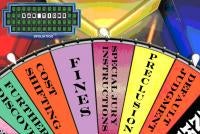Now, I know what you’re probably thinking. “Revisit Zubulake!? But that was so long ago! Surely everything has changed!” (Sarcasm)
To be fair, things were quite different back then – no iPhones, no clouds (in the IT world), no Google Any-Application-You-Can-Think-Ofs. The technology landscape has certainly evolved since Zubulake became a household name.
But (at least) two things haven’t changed: Judge Shira A. Scheindlin’s view of eDiscovery due diligence and parties’ (and their lawyers’) continued failure to meet these expectations.
In Her Honor’s latest eDiscovery-related opinion, Pension Comm. of Univ. of MontrealPension Plan v. Bank of Am. Secs., LLC, __ F. Supp. 2d __ (S.D.N.Y. 2010), Judge Scheindlin provides us all with a much needed reminder that sloppy (i.e., negligent or grossly negligent) document preservation and production will expose parties (and their lawyers) to the court’s arsenal of sanctions: from further discovery, to cost-shifting, to fines, to special jury instructions, to preclusion, to the most severe sanction of all – entry of default judgment or dismissal.
If you’re looking for scandalous discovery abuses or headline-grabbing fines, you’re not going to find that here. This case addresses boring, run-of-the-mill – yet all too common and very serious – sloppy preservation and production actions on the part of clients and their lawyers.
In Pension Comm. of Univ. of Montreal Pension Plan, a group of ninety-six investors filed the initial action in an attempt to recover $550 million in losses after the liquidation of two British Virgin Island-based hedge funds in which they held shares. During the lengthy discovery process, defendants brought to the court’s attention substantial gaps in some (thirteen of the ninety-six) plaintiffs’ document productions.
These defense allegations led to depositions and affidavits that detailed the steps (not) taken to preserve and produce documents (including electronically stored information). At the close of discovery, defendants sought the dismissal of the complaint or some alternative relief for plaintiffs’ discovery abuses.
All tolled, the court found thirteen plaintiffs either negligent or grossly negligent in meeting their discovery obligations and issued sanctions that ranged from further discovery (at the low end), to monetary sanctions and an adverse inference “spoliation charge” (at the high end). In true eLessons Learned fashion, let’s take a closer look at exactly why Judge Scheindlin found plaintiffs’ (and their lawyers’) efforts to be “flawed.”
The ‘Pure Heart and Empty Head’ Syndrome
It’s important to point out from the start that Scheindlin’s assessment of plaintiffs’ acts concluded decisively that this was an instance of careless and lazy preservation of data, as opposed to an intentional destruction of evidence. Nonetheless, she concludes that “there can be little doubt that some documents were lost or destroyed.” Thus, Scheindlin begins down the path of determining the appropriate sanctions for such conduct, despite plaintiffs’ “pure heart [and] empty head.”
But, before we solve the final puzzle (SAN_TIONS), here are the plaintiffs’ R-S-T-L-N and E (Reckless Steps Their Lawyers Negligently Endorsed):*
The Plaintiffs
- Plaintiffs did not issue an appropriate written litigation hold until a few years after they should have.
- Plaintiffs failed to execute a comprehensive and orderly search for documents.
- Plaintiffs failed to sufficiently guide, supervise, and monitor their employees' document collection.
- Plaintiffs submitted inaccurate, incomplete, vague, and contradictory declarations that misled defendants and the court about plaintiffs’ document preservation and production efforts.
- Plaintiffs failed to adequately prepare and produce witnesses with knowledge about document preservation and production efforts, including which files were searched, how searches were conducted, who was asked to search and what they were told, and the extent to which employees’ efforts were supervised.
- Plaintiffs’ document preservation and production efforts were found to be “severely deficient.”
- Plaintiffs failed to collect or preserve any electronic documents prior to their belated litigation hold.
- Plaintiffs failed to request documents from key custodians and witnesses.
- Plaintiffs’ memoranda (purporting to be litigation holds) never specifically instructed employees and key custodians not to destroy records.
- Plaintiffs designated employees with no experience conducting searches and who received no instruction on how to conduct searches, had no supervision during the collection, and had no contact with lawyers during the search.
- Plaintiffs unduly limited the scope of persons with relevant documents to the point of excluding many more who did in fact have responsive documents.
- One plaintiff’s representative admitted that she failed to search an executive’s PalmPilot, which may have contained relevant emails.
- One plaintiff’s general counsel at first declared that he supervised his company’s document search efforts; but later testified at a deposition that he delegated the search to a paralegal. When pressed, he did not know the details of the paralegal’s communication with employees regarding preservation or whether employees complied. In fact, general counsel signed his declaration without fully investigating his company’s search efforts, and he lacked personal knowledge of many of the issues raised in his declaration.
- Lawyers’ telephone conversations, emails, and memoranda instructing plaintiffs to be over, rather than under, inclusive and noting that emails and electronic documents should be included in the production were not enough to constitute an effective litigation hold.
- Lawyers’ subsequent monthly case status memoranda, which included additional requests for documents, were not enough to constitute either an effective litigation hold or adequate monitoring.
- Lawyers failed to focus efforts on discovery while a three-year discovery stay was in place.
- Lawyers failed to sufficiently guide, supervise, and monitor their clients’ document collection.
* - On the surface, these actions may appear intentional or wanton to the unsuspecting eye. However, what “saved” these thirteen plaintiffs was the fact that these errors were corrected later through the filing of amended declarations and other curative conduct.
Wheel of Sanctions
Now back to the sanctions. Scheindlin stated “a plaintiff’s duty [to preserve information] is more often triggered before litigation commences, in large part because plaintiffs control the timing of litigation.” Here, as with other cases we’ve blogged about, “the breach of the duty to preserve, and the resulting spoliation of evidence, may result in the imposition of sanctions by a court.” Recognizing that not all sanctions are created equal, Scheindlin addresses which sanctions would be proper under the circumstances.
She explains that for fines, cost shifting, and other “less severe” sanctions, the crux of the matter is the conduct of the spoliating party. For more severe sanctions (i.e., dismissal, preclusion, and adverse inference jury instructions), “the court must consider, in addition to the conduct of the spoliating party, whether any missing evidence was relevant and whether the innocent party has suffered prejudice as a result of the loss of evidence.”
Scheindlin employs the following burden shifting test to deal with the burden of proof in cases such as this one, which seek more severe sanctions for egregious conduct:
The Final Spin
After a lengthy and thorough review of the facts (indeed, Judge Scheindlin estimates that, collectively, almost 300 hours were spent on the motion and opinion), the court found that plaintiffs “failed to execute a comprehensive search for documents and/or failed to sufficiently supervise or monitor their employees’ document collection.” Scheindlin concludes with the lesson of this case:
While litigants are not required to execute document productions with absolute precision, at a minimum they must act diligently and search thoroughly at the time they reasonably anticipate litigation.
The failure to issue an effective written litigation hold constitutes gross negligence because that failure is likely to result in the destruction of relevant information. Furthermore, a litigation hold that places total reliance on clients’ employees to search and select what they believed to be responsive records without any supervision from counsel is not “effective.”
In the end, jurors will receive instructions that they are permitted to presume the lost evidence is relevant and favorable to the defendants. Additionally, plaintiffs must now deal with monetary sanctions on top of their alleged $550 million losses.
Scheindlin set the precedent for the consequences of this sort of behavior in Zubulake and subsequent decisions. Courts are not going to accept excuses for disregarding now-standard principles and practices. Attention must be paid to avoid the pitfalls documented by Judge Scheindlin. Heed her warning because with one spin of the Wheel of Sanctions, you might not be able to afford buying a vowel.



 />i
/>i

